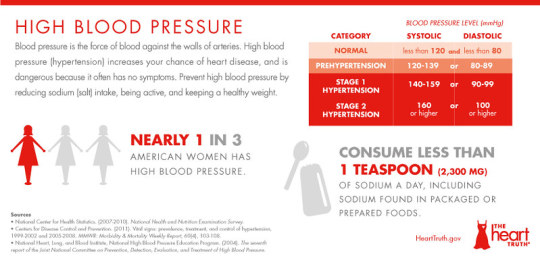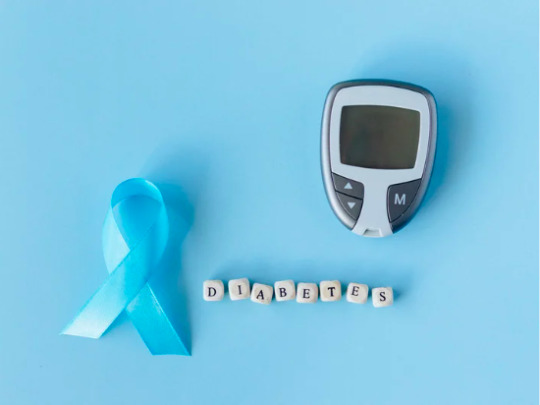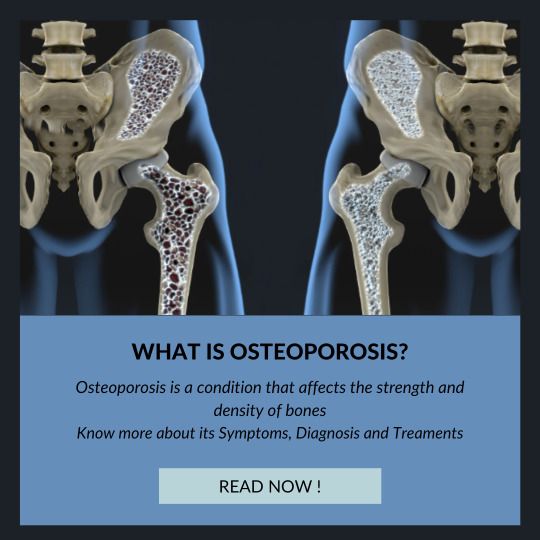#Risk Management for chronic kidney disease
Text
High blood pressure system and causes information
Increased blood pressure in the arteries is a medical disease known as hypertension, or high blood pressure. It’s a vital component of cardiovascular health that has broad effects on general wellbeing. This illness usually takes time to manifest, and until problems happen, it frequently remains asymptomatic.High blood pressure is caused by a number of variables, such as underlying medical…

View On WordPress
#Healthy Living Wellness Nutrition Exercise Mental Health Balanced Diet Fitness SelfCare WellBeing Lifestyle Choices Stress Manage#Hypertension BloodPressure Health#Risk Factors#alcohol consumption#Chronic kidney disease#Definition#Diabetes#general wellness#Genetic Factors#health and fitness#health and wealth coaching#health and wellness#health benefits#health care#Health Education#Health Savings#Health tips#healthcare#Healthcare Solutions#Healthcare Strategies#Healthcare Tips#healthy#healthy and fit#healthy diet#healthy drink#Healthy eating#healthy food#healthy habits#healthy hacks#Healthy Liver
0 notes
Text
aHus is ...
aHus is …
When I first stumbled upon this word, I thought it might have something to do with marriage since the initial syllable of husband is hus. According to Vocabulary.com,
“The word husband comes from the Old Norse hūsbōndi, where hūs meant house and bōndi meant dweller.”
But then, I looked up aHus. Was I ever wrong in assuming this had to do with a house. I turned to my trusted favorites to see…

View On WordPress
#risk factor management#SlowItDownCKD 2011#SlowItDownCKD 2012#SlowItDownCKD 2013#SlowItDownCKD 2014#SlowItDownCKD 2015#SlowItDownCKD 2016#SlowItDownCKD 2017#SlowItDownCKD 2018#SlowItDownCKD 2019#SlowItDownCKD 2020#SlowItDownCKD 2021#SlowItDownCKD podcasts#What Is It and How Did I Get It? Early Stage Chronic Kidney Disease
0 notes
Text
Long COVID continues to evade diagnosis through lab tests - Published Aug 12, 2024
NEW YORK, Aug. 12 (UPI) -- Blood and urine tests are ineffective for diagnosing long COVID -- a constellation of long-term symptoms such as chronic pain, brain fog, shortness of breath and intense fatigue, a new study shows.
Without a clear tool to detect and treat the lingering illness, it remains "a major public health burden," researchers noted, affecting millions of people worldwide and significantly altering quality of life.
The new study, funded by the National Institutes of Health Researching COVID to Enhance Recovery (RECOVER) Initiative, was published Monday in Annals of Internal Medicine.
Because few large studies looked at standardized laboratory tests as a way to help diagnose long COVID, researchers decided to examine results of 25 measurements in more of than 10,000 adults enrolled in the RECOVER trial. Launched in 2021, this trial received $1.15 billion in congressional funding.
At the outset, participants underwent blood tests and were deemed eligible whether or not they had a previous infection of SARS-CoV-2.
Researchers followed them with surveys every three months and laboratory samples at six, 12, 24, 36 and 48 months after infection or the date of a negative test result.
In comparing responses to questionnaires and routine test outcomes, researchers assessed whether SARS-CoV-2 resulted in repeated laboratory abnormalities regardless if participants had symptoms.
The findings basically revealed little, said the study's lead author, Dr. Kristine Erlandson, a professor of medicine and epidemiology at the University of Colorado Anschutz Medical Campus in Aurora. That's because the laboratory results were inconclusive.
However, she and co-researchers recommended in their study report that clinicians still perform routine clinical tests to rule out other treatable causes of the symptoms in post-acute sequelae of COVID-19, the scientific name for long COVID.
Researchers also uncovered evidence to bolster the notion that SARS-CoV-2 could contribute to the risk of diabetes independent of long COVID -- a link found early in the pandemic.
Individuals with prior SARS-CoV-2 also had higher urine albumin to creatinine ratio. This indicator of early kidney disease has shown an association with cardiovascular conditions in other populations.
Continuing inflammation may be a possible explanation for smell and taste disruptions and post-acute sequelae of COVID-19, researchers said.
"The diversity of symptoms may be one of the reasons that we have difficulty in truly understanding why some people develop long COVID and ultimately how we can treat it," Erlandson said.
"Long COVID is a condition currently defined by symptoms and physical exam findings, not by abnormal routine laboratory measures," she added.
"Similarly, providers should certainly not dismiss a diagnosis of long COVID based on normal clinical laboratory values."
In an accompanying editorial, researchers from Johns Hopkins University School of Medicine in Baltimore noted that most significant unsolved enigmas of the COVID-19 pandemic pertain to the knowledge, diagnosis and treatment of long COVID.
"When [it is] severe, long COVID can be disabling, resulting in job loss or inconsistent ability to perform other roles, such as caregiving. Even in 2024, long COVID remains common," Drs. Paul Auwaerter and Annukka Antar wrote in the editorial.
"Approximately 1 in 20 U.S. adults reported persisting symptoms after COVID-19 in June 2024, with 1.4% reporting significant limitations The incidence of long COVID is 3.5% among immunized people in the Omicron era, and it can occur after reinfection."
The editorial's writers added that "importantly, acknowledging symptoms with empathy and creating a symptom management plan provides a basis for trust and hope amidst uncertainty."
Read the rest of the report at either link!
#covid#mask up#pandemic#covid 19#wear a mask#coronavirus#sars cov 2#still coviding#public health#wear a respirator
18 notes
·
View notes
Text
by Debbie Weiss
At least one-third of the 136 hostages still in the Hamas terror group’s custody in Gaza are at imminent risk of death, a disturbing report released on Tuesday found.
The report came a day after several former hostages, who were released during a temporary Israel-Hamas truce at the end of November, testified that those still in captivity in Gaza had been subjected to extreme forms of violence, including sexual assault at gunpoint and amputation.
“The testimonies from those who have been released reveal severe mental and physical abuse. This includes brutal sexual assault (men and women) mutilation, torture, starvation and dehydration, and a lack of medical care, with no access to Red Cross representatives. The worsening health of these hostages, both men and women, is alarming,” the report, released by the Hostages and Missing Persons Families Forum, stated.
The forum was established by families of the abductees who were kidnapped to Gaza during Hamas’ Oct. 7 onslaught across southern Israel, as well as by the families of people who went missing due to the attack.
A third of the hostages are suffering from chronic illnesses that need immediate treatment, including diabetes, Crohn’s disease, cancer, and heart and kidney disease. The hostages suffering from those diseases include young people — such as 22-year-old Omer Wenkert, who has ulcerative colitis, and 35-year-old Dolev Yehud, who suffers from kidney and thyroid diseases — and older people, Israeli Jews and Arabs alike.
A chilling testimony by Agam Goldstein-Almog, 17 — who was released after 51 days of captivity along with her mother, Chen, 49, and siblings, Gal, 11, and Tal, 9 — was screened at a rally in Tel Aviv.
“One day we moved from a house to a tunnel, suddenly a door opened, and we met six girls. We realized that there were girls who were alone. Many girls experienced severe sexual abuse, they are injured — very, very serious and complex injuries that are not being treated,” she said. “They dress their wounds themselves, or we helped them.”
In captivity in Gaza, “you live death,” she said.
“You don’t know when it will catch you and how it will look, if it will happen through torture or if they will just shoot you or even if it’ll be by the bombings from the air force,” she continued. “You’re always thinking about what death will look like.”
Goldstein-Almog’s mother, Chen, a social worker, said she saw some of the female hostages still being held in Gaza during her time there, and they had suffered weeks of isolation as well as sexual abuse.
“There were girls who spent 50 days and more alone. When they were sad, crying, their captors would stroke them and touch them. They described accounts of sexual abuse under gunpoint on a regular basis,” she said.
“Some of the girls were badly wounded and haven’t been getting proper medical care. Gunshot wounds, even lost limbs. They said they can cope with the disability but not with the manner they were constantly violated,” she added.
Chen Almog-Goldstein’s other daughter, Yam, 20, and husband Nadav were among the 1,200 people murdered by Hamas terrorists during their Oct. 7 massacre.
Eighteen-year-old Ofir Engel’s testimony, in which he described the pride with which he was shown off like a trophy, was also screened at the Tel Aviv rally.
“In Gaza we were immediately brought to a home, as if they were proud to show what they managed to catch,” said Engel, who was released after 54 days. “We were constantly told that we won’t return alive, that no one wants us in Israel, and that our families don’t care about us. Every day, they broke us a little more, and then a little more.”
Tuesday’s report, which was released to coincide with the three-month anniversary since Oct. 7, was accompanied by a letter from eight Nobel Prize laureates who urged the UN, Red Cross, and World Health Organization to advocate for the hostages’ release and to facilitate access to medical aid in the meantime.
Prof. Hagai Levine, head of the forum’s medical team, issued a stark warning: “All the hostages face immediate mortal danger. Some will not survive 100 days in captivity without proper care.”
A day earlier, Israeli media reported that the Israel Defense Forces (IDF) is aware of the exact whereabouts of Yahya Sinwar, Hamas’ chief in Gaza, but is refraining from carrying out a strike because the terror leader was surrounding himself with dozens of hostages as human shields.
35 notes
·
View notes
Text
i feel like maybe some of my fellow chronic pain girlies might not know this so about the absolute standard otc painkillers ibuprofen and paracetamol / acetaminophen:
ibuprofen and other NSAIDs, if taken on a chronic basis (medically defined as more than 3 times a week for more than three months) significantly increase your chances of developing chronic kidney disease, proportional to how much and how often you take it. these risks actually increase when combined with paracetamol / acetaminophen - if you absolutely have to take them regularly, maybe choose one or the other - i would recommend the one that isnt ibuprofen, because the other side effect of long term NSAID use is increased risk of gastrointestinal bleeding and intestinal perforation. idk if you know this but bleeding on the inside is even worse than bleeding on the outside. on account of the fact that you cant see it and you might not figure out its happening until its too late. my source on that one is straight from the doctors mouth during an emergency room potential-internal-bleeding visit.
as for paracetamol, you also cant take that too regularly. read the box for real bc overuse will ruin your liver. pain management is already tough but if youre on otc pain meds for it then its probably not as bad as how badly organ damage would hurt. personally im on a weed + occasional paracetamol with codeine routine and ive quit drinking bc im pretty sure ive put my liver through enough already, but i wont pretend thats perfect either bc its not like chronic weed smoking is free of consequences. when theres no perfect option its just important to know the risks and choose the ones you can afford to take imo
38 notes
·
View notes
Text
Understanding Different Types of Diabetes and Their Impact on the Body

Diabetes is a chronic condition that affects millions of people worldwide. It disrupts the body's ability to regulate blood sugar (glucose) levels, leading to serious health complications if not managed properly. There are several types of diabetes, each with unique characteristics and impacts on the body. This article will explore the different types of diabetes, how they affect the body, and the tests provided by RML Pathology to diagnose and manage this condition.
1. Type 1 Diabetes
Description:
Type 1 diabetes is an autoimmune disease where the immune system mistakenly attacks and destroys insulin-producing beta cells in the pancreas. This results in little to no insulin production, which is essential for regulating blood sugar levels.
Impact on the Body:
Requires lifelong insulin therapy.
Increases the risk of complications such as diabetic ketoacidosis (DKA), a potentially life-threatening condition.
Long-term complications include cardiovascular disease, kidney damage (nephropathy), nerve damage (neuropathy), and vision problems (retinopathy).
Can cause frequent urination, excessive thirst, extreme hunger, weight loss, fatigue, and irritability.
2. Type 2 Diabetes
Description:
Type 2 diabetes is the most common form of diabetes. It occurs when the body becomes resistant to insulin or when the pancreas does not produce enough insulin. Lifestyle factors such as obesity, poor diet, and lack of exercise significantly contribute to its development.
Impact on the Body:
Often managed with lifestyle changes, oral medications, and sometimes insulin.
Can lead to complications like heart disease, stroke, kidney disease, eye problems, and nerve damage.
Symptoms include increased thirst, frequent urination, increased hunger, fatigue, blurred vision, slow-healing sores, and frequent infections.
3. Gestational Diabetes
Description:
Gestational diabetes occurs during pregnancy when the body cannot produce enough insulin to meet the increased needs. It usually resolves after childbirth but increases the risk of developing type 2 diabetes later in life.
Impact on the Body:
Can cause high blood pressure during pregnancy (preeclampsia).
Increases the risk of having a large baby, leading to complications during delivery.
May result in low blood sugar levels in the newborn and a higher risk of obesity and type 2 diabetes in the child later in life.
4. Prediabetes
Description:
Prediabetes is a condition where blood sugar levels are higher than normal but not high enough to be classified as type 2 diabetes. It is a critical stage for intervention to prevent the progression to type 2 diabetes.
Impact on the Body:
Often reversible with lifestyle changes such as diet and exercise.
Increases the risk of developing type 2 diabetes, heart disease, and stroke.
Symptoms are often absent or mild, making regular screening important.
Tests Provided by RML Pathology
RML Pathology offers a comprehensive range of tests to diagnose and manage diabetes effectively. These include:
Fasting Blood Glucose Test:
Measures blood sugar levels after fasting for at least 8 hours.
Helps diagnose diabetes and prediabetes.
HbA1c Test:
Provides an average blood sugar level over the past 2-3 months.
Used to diagnose diabetes and monitor long-term glucose control.
Oral Glucose Tolerance Test (OGTT):
Measures the body's response to a glucose solution.
Commonly used to diagnose gestational diabetes.
Random Blood Sugar Test:
Measures blood sugar levels at any time of the day.
Useful for diagnosing diabetes when symptoms are present.
Gestational Diabetes Test:
Specifically designed for pregnant women to detect gestational diabetes.
Conclusion
Understanding the different types of diabetes and their impact on the body is crucial for effective management and prevention. Regular testing and early detection play a vital role in managing diabetes and preventing complications. RML Pathology provides a wide range of diagnostic tests to help you monitor and manage your diabetes effectively. If you have any symptoms or risk factors for diabetes, consider visiting RML Pathology for a comprehensive evaluation.
Contact RML Pathology Today:
📞 7991602001, 7991602002 📞 0522-4034100 🌐 www.rmlpathology.com
Experience the best in diagnostics with RML Pathology – where your health is our priority.
#diabetes#type 1 diabetes#type 2 diabetes#gestational diabetes#prediabetes#diabetes management#blood sugar#glucose levels#RML Pathology#diabetes tests#HbA1c#fasting blood glucose#oral glucose tolerance test#random blood sugar test#health#healthcare#diabetes diagnosis
2 notes
·
View notes
Text
How to eliminate diabetes
Eliminating diabetes entirely is a complex challenge because it involves multiple factors, including genetics, lifestyle, and environmental influences. However, managing and even reversing diabetes is possible for many individuals through a combination of lifestyle changes and medical interventions. Here's a comprehensive guide on how to approach the elimination of diabetes:
1. **Healthy Diet**: The cornerstone of diabetes management is a balanced and nutritious diet. Focus on whole foods such as fruits, vegetables, lean proteins, and whole grains. Avoid sugary beverages, refined carbohydrates, and processed foods. Emphasize foods with a low glycemic index to help control blood sugar levels more effectively.
2. **Regular Exercise**: Engage in regular physical activity to improve insulin sensitivity and lower blood sugar levels. Aim for at least 30 minutes of moderate-intensity exercise most days of the week. Incorporate a combination of aerobic exercises (such as walking, swimming, or cycling) and strength training to maximize benefits.
3. **Weight Management**: Losing excess weight, especially around the abdomen, can significantly improve insulin sensitivity and reduce the risk of diabetes complications. Even modest weight loss can have a profound impact on blood sugar control. Consult with a healthcare professional to develop a personalized weight loss plan.
4. **Monitor Blood Sugar Levels**: Regular monitoring of blood glucose levels is essential for managing diabetes effectively. Keep track of your readings and adjust your diet, exercise, and medication accordingly. Understanding how different foods and activities affect your blood sugar levels can help you make informed decisions.
5. **Medication and Insulin Therapy**: Depending on the type and severity of diabetes, medication or insulin therapy may be necessary to manage blood sugar levels. Follow your healthcare provider's recommendations regarding medication dosage and timing. Insulin therapy may be required for individuals with type 1 diabetes or advanced type 2 diabetes.
6. **Stress Management**: Chronic stress can elevate blood sugar levels and contribute to insulin resistance. Practice stress-reduction techniques such as mindfulness meditation, deep breathing exercises, yoga, or tai chi. Prioritize self-care and make time for activities that help you relax and unwind.
7. **Quit Smoking**: Smoking increases the risk of developing type 2 diabetes and can worsen complications in individuals with diabetes. If you smoke, seek support to quit. Quitting smoking can improve blood sugar control and reduce the risk of diabetes-related complications such as heart disease and stroke.
8. **Regular Medical Check-ups**: Schedule regular check-ups with your healthcare provider to monitor your diabetes management and overall health. Discuss any concerns or changes in symptoms promptly. Routine screenings for diabetes-related complications such as eye problems, kidney disease, and nerve damage are essential for early detection and intervention.
Try to this product Pleasure nerve
9. **Education and Support**: Educate yourself about diabetes management and lifestyle modifications that can help control the condition. Join a support group or seek support from friends, family, or healthcare professionals. Connecting with others who understand your challenges can provide valuable encouragement and motivation.


10. **Consistency and Patience**: Managing diabetes is a lifelong commitment that requires consistency and patience. Stay committed to your healthy lifestyle habits, even when faced with challenges or setbacks. Celebrate your progress and focus on making sustainable changes for long-term health and well-being.
You can try to this product, Pleasure nerve


While complete elimination of diabetes may not be possible for everyone, significant improvements in blood sugar control and overall health are achievable through proactive management and healthy lifestyle choices. By incorporating these strategies into your daily routine and working closely with your healthcare team, you can take control of your diabetes and live a full, active life.
You can try to this product , Pleasure nerve
Open this link in your chrome browser
2 notes
·
View notes
Text
"How to Combat Inflammaging, the Aging Side Effect No One Talks About"
Article Date: April 7, 2024.
Article Excerpt:
It may sound like a made-up word, but “inflammaging” is a medical term coined more than 20 years ago to describe the chronic inflammation that happens in our bodies as we get older. “It’s a word that combines ‘aging’ and ‘inflammation’ to describe a low-level inflammatory process,” says Linda Herrmann, Ph.D., a clinical associate professor and aging expert in the Division of Advanced Nursing Practice at Rutgers, the State University of New Jersey. “It’s systemic throughout the body, but occurs in the absence of an acute illness or injury.”
[...]
It turns out that inflammaging is a risk factor for cardiovascular diseases, kidney disease, diabetes, cancer, depression and dementia. “The rise in rates of these conditions are the by-products of a longer life span,” says Nicole Ehrhart, V.M.D.,
[...]
Potential triggers may include genetic susceptibility, obesity, changes in the microbiome and chronic infections.
Another cause seems to be cellular senescence, which is when cells stop replicating, but they don’t die. “Instead, they go into a sort of ‘undead’ state, secreting inflammatory factors and inducing neighbor cells to do the same,” says Ehrhart. [...]
“as we age, our immune system gets less specific to what it’s reacting to. After a while, this cumulative sort of chronic response actually becomes this low-grade chronic inflammation,” says Ehrhart. “It doesn’t’ function like it used to when we were younger.” The result is inflammaging. [...]
How can you prevent inflammaging? [...]
Get moving
Work on your balance
"Eat right"
Manage stress
Spend quality time with others
Get good sleep
[Note: more information in article, take with a bit of skepticism - "a grain of salt"]
#am getting sense that there really isn't much that's known about it to have such vague broad advice n blaming obesity (vague)#text post#o post#magz upload
6 notes
·
View notes
Text
The Bountiful Benefits of a Vegan Lifestyle on Health
Introduction: In recent years, the popularity of veganism has soared, not only as a dietary choice but as a lifestyle embraced by many for its ethical, environmental, and health considerations. While the ethical and environmental arguments for veganism are compelling, this article will delve into the myriad health benefits that come with adopting a vegan diet and lifestyle. From reducing the risk of chronic diseases to promoting overall well-being, veganism offers a wealth of advantages for those who choose to embrace it.

Lower Risk of Chronic Diseases: One of the most significant health benefits of adopting a vegan diet is the reduced risk of chronic diseases. Numerous studies have shown that Vegan Health Benefits tend to have lower rates of heart disease, hypertension, type 2 diabetes, and certain types of cancer compared to omnivores. The absence of animal products in the diet means lower intake of saturated fats and cholesterol, which are known contributors to cardiovascular problems. Additionally, the abundance of fruits, vegetables, whole grains, nuts, and legumes in a vegan diet provides essential nutrients and antioxidants that help combat inflammation and oxidative stress, further lowering the risk of chronic diseases.
Weight Management and Improved Metabolic Health: Obesity and overweight are significant contributors to various health issues, including heart disease, diabetes, and joint problems. Vegan Health Benefits, typically rich in fiber and low in saturated fats, can aid in weight management and improve metabolic health. Plant-based foods tend to be less calorie-dense while being more nutrient-dense, allowing individuals to feel fuller for longer periods and consume fewer calories overall. Furthermore, studies have indicated that vegan diets may enhance insulin sensitivity, potentially reducing the risk of type 2 diabetes and metabolic syndrome.
Enhanced Digestive Health: A plant-based diet is naturally high in dietary fiber, which plays a crucial role in maintaining digestive health. Fiber promotes regular bowel movements, prevents constipation, and supports a healthy gut microbiome. By fostering the growth of beneficial bacteria in the colon, fiber helps reduce the risk of digestive disorders such as diverticulitis, hemorrhoids, and irritable bowel syndrome (IBS). Moreover, a diet rich in fruits, vegetables, and whole grains provides ample prebiotics—non-digestible fibers that nourish gut bacteria—further supporting digestive wellness.
Lower Blood Pressure and Reduced Risk of Stroke: High blood pressure, or hypertension, is a significant risk factor for stroke, heart disease, and kidney failure. Vegan Health Benefits, characterized by their emphasis on whole plant foods and minimal processed foods, have been shown to help lower blood pressure levels. The abundance of potassium-rich foods, such as leafy greens, bananas, and potatoes, helps counteract the effects of sodium and promote healthy blood pressure. Additionally, the anti-inflammatory properties of plant-based foods contribute to improved vascular function and reduced arterial stiffness, further decreasing the risk of stroke and other cardiovascular events.
Improved Skin Health and Anti-Aging Benefits: The saying "you are what you eat" holds true when it comes to skin health. A diet rich in fruits, vegetables, and healthy fats can contribute to a radiant complexion and delay signs of aging. Plant-based foods are loaded with vitamins, minerals, and antioxidants that nourish the skin from within, helping to combat oxidative stress and inflammation. Furthermore, the absence of dairy products in a Vegan Health Benefits may benefit individuals prone to acne, as dairy consumption has been linked to increased acne severity in some studies. By promoting hydration, collagen production, and overall skin vitality, a vegan diet can help individuals achieve a healthier, more youthful appearance.
Potential Reduction in Allergic Reactions and Food Sensitivities: Food allergies and sensitivities can significantly impact one's quality of life, leading to uncomfortable symptoms and dietary restrictions. While allergies are primarily determined by genetics and immune system responses, some evidence suggests that vegan diets may help reduce the risk or severity of certain allergic reactions. By eliminating common allergens such as dairy, eggs, and shellfish, individuals may experience relief from symptoms related to food allergies or sensitivities. Additionally, the diversity of plant-based foods in a vegan diet can help support a robust immune system, potentially reducing the likelihood of developing new allergies over time.
Conclusion: The health benefits of a vegan lifestyle are vast and compelling, offering individuals the opportunity to improve their well-being while making ethical and sustainable dietary choices. From lowering the risk of chronic diseases to promoting digestive health, veganism provides a holistic approach to nourishing the body and mind. While transitioning to a vegan diet may require thoughtful planning and education to ensure adequate nutrient intake, the rewards in terms of Vegan Health Benefits and vitality are well worth the effort. By embracing a plant-based lifestyle, individuals can not only transform their own health but also contribute to a more sustainable and compassionate world.
Website: https://cruelty.farm
2 notes
·
View notes
Text
Doing review questions.
Hyperkalemia is a known side effect of ACE inhibitors and angiotensin receptor blockers such as olmesartan. The risk of hyperkalemia is increased with chronic kidney disease, diabetes mellitus, moderately severe to severe heart failure, NSAID use, and older adults. Chlorthalidone and hydrochlorothiazide can cause hypokalemia.
In men who are diagnosed with hypogonadism with symptoms of testosterone deficiency and unequivocally
and consistently low serum testosterone concentrations, further evaluation with FSH and LH levels is
advised as the initial workup to distinguish between primary and secondary hypogonadism. If secondary
hypogonadism is indicated by low or inappropriately normal FSH and LH levels, prolactin and serum iron
levels and measurement of total iron binding capacity are recommended to determine secondary causes of
hypogonadism, with possible further evaluation to include other pituitary hormone levels and MRI of the
pituitary. If primary hypogonadism is found, karyotyping may be indicated for Klinefelter’s syndrome.
Daily use of polyethylene
glycol (PEG) solution has been found to be more effective than lactulose, senna, or magnesium hydroxide
in head-to-head studies. Evidence does not support the use of fiber supplements in the treatment of
functional constipation. No adverse effects were reported with PEG therapy at any dosing regimen.
Low-dose regimens of PEG are 0.3 g/kg/day and high-dose regimens are up to 1.0–1.5 g/kg/day.
Ref: Tabbers MM, DiLorenzo C, Berger MY, et al: Evaluation and treatment of functional constipation in infants and children:
Evidence-based recommendations from ESPGHAN and NASPGHAN. J Pediatr Gastroenterol Nutr 2014;58(2):258-274.
2) Gordon M, MacDonald JK, Parker CE, et al: Osmotic and stimulant laxatives for the management of childhood
constipation. Cochrane Database Syst Rev 2016;(8):CD009118. 3) Lauters R, Saguil A: Laxatives for the management of
childhood constipation. Am Fam Physician 2017;96(7):433-434
Primary hyperaldosteronism should be suspected as a cause for hypertension if a patient has a spontaneously low potassium level or persistent hypertension despite the use of three or more antihypertensive medications, including a diuretic. This can be evaluated by checking a serum renin activity level and a serum aldosterone concentration and determining the aldosterone/renin ratio. Primary hyperaldosteronism typically presents with a very low serum renin activity level and an elevated serum aldosterone concentration. A 24-hour urine collection for 5-hydroxyindoleacetic acid (5-HIAA) would be used to evaluate for a neuroendocrine tumor, which can present as chronic flushing and diarrhea. Cortisol levels can be checked if Cushing syndrome is suspected. Hypertension can be present in Cushing syndrome, but it is typically associated with other signs such as obesity and an elevated blood glucose level due to insulin resistance.
Psychogenic tremor is characterized by an abrupt onset, spontaneous remission, changing characteristics,
and extinction with distraction. Cerebellar tremor is an intention tremor with ipsilateral involvement on
the side of the lesion. Neurologic testing will reveal past-pointing on finger-to-nose testing. CT or MRI
of the head is the diagnostic test of choice. Parkinsonian tremor is noted at rest, is asymmetric, and
decreases with voluntary movement. Bradykinesia, rigidity, and postural instability are generally noted.
For atypical presentations a single-photon emission CT or positron emission tomography may help with
the diagnosis. One of the treatment options is carbidopa/levodopa.
Patients who have essential tremor have symmetric, fine tremors that may involve the hands, wrists, head,
voice, or lower extremities. This may improve with ingestion of small amounts of alcohol. There is no
specific diagnostic test but the tremor is treated with propranolol or primidone. Enhanced physiologic
tremor is a postural tremor of low amplitude exacerbated by medication. There is usually a history of
caffeine use or anxiety.
Ref: Crawford P, Zimmerman EE: Tremor: Sorting through the differential diagnosis. Am Fam Physician 2018;97(3):180-186.
I got 100% on the first quiz! :)
2 notes
·
View notes
Text
Scientists Develop Novel Machine Learning Models to Predict Comorbidities at an Early Stage of Type 2 Diabetes Mellitus

Type 2 Diabetes Mellitus (T2DM), a recognized risk factor for heart failure (HF) and cardiovascular illnesses such as chronic kidney disease (CKD), was diagnosed in an estimated 537 million people worldwide.
In order to manage CKD and HF in individuals with early stages of T2DM, a complete treatment strategy is preferred. Early and better detection of these disorders can improve results. But recent research indicates that T2DM patients’ CKD and HF are not properly recognized, which results in increased rates of disease progression and a worse prognosis.
Researchers at AstraZeneca and Ono Pharmaceuticals created a model that could predict the likelihood that individuals with T2DM who had no prior history of CKD would develop CKD/HF. This study is a major step toward early and better diagnosis of CKD and HF in patients with T2DM.
Continue Reading
#bioinformatics#type 2 diabetes#chronic kidney disease#heart failure#machinelearning#health#100daysofcode#scicomm#medcomm#stem#science news
43 notes
·
View notes
Text
Diabetes and Kidney Disease: The Connection and How to Protect Your Kidneys

Looking for a doctor near you in Brooklyn 11213 to help you manage your diabetes and kidney disease?
Visit Prasad Medical Center, where our team of experts will work with you to develop a personalized treatment plan to help you control your blood sugar levels, protect your kidneys, and improve your overall health.
Introduction:
Diabetes is a chronic health condition that affects how your body turns food into energy.
When you have diabetes, your body either resists the effects of insulin—a hormone that regulates the movement of sugar into your cells—or doesn’t produce enough insulin to maintain normal glucose levels.
Over time, high blood sugar can damage many parts of your body, including your kidneys.
Diabetic kidney disease, also known as diabetic nephropathy, is a common complication of diabetes.
It occurs when high blood sugar damages the tiny blood vessels in your kidneys, making it difficult for them to filter waste products from your blood.
If diabetic kidney disease is not treated, it can lead to kidney failure, a serious condition that requires dialysis or a kidney transplant.
You can reach our dialysis centers in Brooklyn in these places
What happens to your kidneys when you have diabetes?
When you have diabetes, high blood sugar can damage the tiny blood vessels in your kidneys.
This damage can make it difficult for your kidneys to filter waste products from your blood.
Over time, as the blood vessels in your kidneys become more damaged, your kidneys may not be able to function as well as they should.
This can lead to a buildup of waste products in your blood, which can cause a variety of health problems, including:
High blood pressure
Fluid retention
Anemia
Weakness and fatigue
Bone disease
Heart disease
Stroke
Kidney failure

How to protect your kidneys if you have diabetes:
The best way to protect your kidneys if you have diabetes is to control your blood sugar levels. You can do this by following your treatment plan, which may include taking medication, eating a healthy diet, and exercising regularly.
Know more about: OUR SPECIALIZED TREATMENTS - NEPHROLOGY
Here are some other tips for protecting your kidneys:
Monitor your blood pressure regularly: High blood pressure can damage your kidneys even further, so it’s important to monitor your blood pressure regularly and work with your doctor to keep it under control.
Maintain a healthy weight: Obesity is a risk factor for both diabetes and kidney disease. If you are overweight or obese, losing weight can help improve your blood sugar levels and reduce your risk of kidney disease.
Eat a healthy diet: A healthy diet for people with diabetes and kidney disease is low in saturated and trans fats, sodium, and sugar. It is also high in fruits, vegetables, and whole grains.
Exercise regularly: Exercise can help improve your blood sugar levels, blood pressure, and overall health. Aim for at least 30 minutes of moderate-intensity exercise most days of the week.
Don’t smoke: Smoking damages your blood vessels and can make kidney disease worse. If you smoke, talk to your doctor about quitting.
When to see a doctor:
If you have diabetes, it is important to see your doctor regularly for checkups and kidney function tests. This is especially important if you have any of the following symptoms:
Swelling in your feet, ankles, or hands
Fatigue
High blood pressure
Blood or protein in your urine
Changes in urination
If you have any of these symptoms, your doctor may refer you to a nephrologist, a specialist in kidney diseases in Brooklyn.
Finding the best doctor near you in Brooklyn:
If you are looking for a doctor in Brooklyn to help you manage your diabetes and kidney disease, there are a few things you can do to find the best doctor near you:
Ask your primary care physician for a referral
Search for doctors in your area who specialize in diabetes and/or kidney disease
Read online reviews of doctors in your area.
Talk to your friends and family members who have diabetes and/or kidney disease to see who they recommend.
Once you have found a few doctors that you are interested in, you can schedule a consultation to learn more about their approach to treating diabetes and kidney disease.
Conclusion:
Diabetes and kidney disease are serious conditions, but they can be managed with proper care. By following your treatment plan, eating a healthy diet, and exercising regularly, you can help protect your kidneys and live a long and healthy life.
If you are looking for a doctor to help you manage your diabetes and kidney disease, there are a few things you can do to find the best doctor near you in Brooklyn.
#best doctor in brooklyn#doctors near brooklyn#best neurologist doctor in new york#clinic near me brooklyn#doctors near new york ny#the best neurologist in brooklyn#the best doctors in new york#medical doctor in brooklyn#best doctors in brooklyn#doctor in brooklyn ny#brooklyn clinic near me
2 notes
·
View notes
Text
How can I check if I am diabetic?
Diabetes is a chronic medical condition that occurs when your body is unable to properly regulate blood sugar levels. It is a serious and potentially life-threatening disease, but early diagnosis and treatment can help manage it effectively. Therefore, it is crucial to be aware of the early signs of diabetes. Here are ten signs that you should look out for:

Increased thirst: Feeling thirsty frequently is one of the most common symptoms of diabetes. As your body tries to flush out excess sugar through urine, it also eliminates fluids, leading to dehydration and increased thirst.
Frequent urination: When your blood sugar levels are high, your kidneys work harder to filter and absorb glucose, causing more frequent urination. This can also lead to an increased risk of urinary tract infections.
Extreme hunger: When your body can't use glucose effectively, it starts breaking down fat and muscle for energy, leading to hunger pangs even after eating.
Fatigue: If you are feeling unusually tired or lethargic, it could be a sign of diabetes. Your body is not able to use glucose effectively, so your cells don't get the energy they need.
Blurred vision: High blood sugar levels can damage the blood vessels in your eyes, causing blurred vision or even blindness if left untreated.
Slow healing: If you notice that cuts or sores take longer than usual to heal, it could be a sign of diabetes. High blood sugar levels can damage nerves and blood vessels, making it harder for your body to heal wounds.
Numbness and tingling: Diabetes can cause nerve damage, leading to numbness and tingling sensations in your hands and feet.
Dry, itchy skin: High blood sugar levels can cause dryness and itchiness in your skin, as well as other skin conditions such as infections and slow healing wounds.
Recurring infections: High blood sugar levels can weaken your immune system, making you more susceptible to infections. Common infections include urinary tract infections, yeast infections, and skin infections.
Unexplained weight loss: If you are losing weight without trying, it could be a sign of diabetes. Your body is breaking down fat and muscle for energy because it cannot use glucose effectively.
If you experience any of these symptoms, it is important to see your doctor for a proper diagnosis. Diabetes is a serious medical condition that requires careful management to avoid complications. With proper treatment and lifestyle changes, people with diabetes can live full and healthy lives.
In conclusion, diabetes is a chronic medical condition that affects millions of people around the world. It is crucial to be aware of the early signs of diabetes to ensure timely diagnosis and treatment. If you notice any of the symptoms mentioned above, it is important to see your doctor right away. Remember, early detection and management can help prevent complications and ensure a healthier life
2 notes
·
View notes
Text
What is Osteoporosis?
Osteoporosis is a condition that affects the strength and density of bones, leading to increased fragility and susceptibility to fractures. It is a common condition and Osteoporotic fractures affect around 10 million Indians each year, with women being more susceptible than men. This article aims to provide an in-depth understanding of Osteoporosis, including its causes, symptoms, and treatment options.

Osteoporosis is caused by a combination of factors, including genetics, lifestyle, and hormonal changes.
Some of the most common causes of Osteoporosis include:
Hormonal Changes: As we age, our bodies undergo hormonal changes that can affect bone health. Women, in particular, are at an increased risk of Osteoporosis due to the drop in estrogen levels after menopause.
Genetics: Family history plays a role in Osteoporosis, and those with a family history of the condition are more likely to develop it themselves.
Lifestyle Factors: Lifestyle factors such as smoking, excessive alcohol consumption, a sedentary lifestyle, and a poor diet can all contribute to the development of Osteoporosis.
Medical Conditions: Certain medical conditions, such as thyroid disorders, inflammatory bowel disease, and chronic kidney disease, can also increase the risk of Osteoporosis.
Prevention of Osteoporosis
There are several steps that people can take to reduce their risk of developing Osteoporosis, including:
Eating a healthy diet: A diet rich in calcium and vitamin D can help strengthen bones and reduce the risk of Osteoporosis.
Exercising regularly: Weight-bearing exercises, such as walking and running, can help to strengthen bones and reduce the risk of Osteoporosis.
Quitting smoking: Smoking can contribute to the development of Osteoporosis, so quitting smoking is an essential step in prevention.
Limiting alcohol consumption: Excessive alcohol consumption can weaken bones and increase the risk of Osteoporosis.
Osteoporosis is a severe condition that can cause significant damage to bone health. However, it is possible to prevent and manage Osteoporosis by understanding its causes, symptoms, and treatment options.
At Sarvesh Health City, we offer comprehensive care for people with Osteoporosis. Our healthcare professional team includes Orthopedics, Orthopedic surgery, and Physical Therapy Specialists.
If you are concerned about your bone health, we recommend scheduling an appointment with one of our specialists. We can help you understand your risk of developing Osteoporosis and create a plan to keep your bones healthy and strong. With the proper care and support, people with Osteoporosis can enjoy an active and healthy life free from the risks and complications of this condition.
2 notes
·
View notes
Text
An Advocate for Kidney Patients
Elizabeth Oldham learned she had Chronic Kidney Disease (CKD) in 2018. Since then, she is learning everything she can in order to manage the disease. She knew she was at risk because of a family history of chronic disease, and her higher likelihood of developing CKD as a Black woman. However, Elizabeth lives a vegan lifestyle and is proactive in her healthcare journey, which she is hopeful will keep her from developing end-stage renal disease, and off dialysis, as long as possible.

Elizabeth attended a community health fair on behalf of Kidney Foundation of Ohio.
While attending an educational class at a dialysis unit, Elizabeth received a pamphlet from Kidney Foundation of Ohio. She was inspired to get more involved with our educational offerings and began attending learning series sessions and World Kidney Day events. Then, in 2022, she took a step further and became a volunteer, assisting in passing out resources at community health fairs.
Elizabeth feels blessed to have more resources at her disposable than a lot of individuals with kidney disease, so she wants to give back to the kidney community. Aside from volunteering with KFO, her work has included helping to get the Living Donor Protection Act passed, writing articles for local news outlets, and serving on committees for national kidney organizations.

Elizabeth spoke in a video for Cleveland MOTTEP promoting COVID-19 vaccinations.
Since a very young age, Elizabeth and her family have been committed to community service, and education. Her passion for education on early disease detection is admirable, and we are thankful to have Elizabeth as a kidney patient advocate and volunteer. In her free time she is an avid reader who loves to collect old novels, go vintage shopping, and watch old classic films.
Interested in getting more involved as a volunteer for Kidney Foundation of Ohio? Contact Annette at [email protected] or (216) 771-2700, or visit our website to learn what opportunities are available.
3 notes
·
View notes
Text
How can I control my blood pressure naturally?
High blood pressure, also known as hypertension, is a common condition that can increase your risk of serious health problems, such as heart disease and stroke. Here are 18 points to consider when trying to understand how you can control your blood pressure naturally:
Eat a healthy diet: A healthy diet can help lower your blood pressure and reduce your risk of serious health problems. Some dietary changes that may help lower your blood pressure include: Eating more fruits, vegetables, and whole grains, Limiting your intake of salt and sodium, Eating foods that are low in saturated and trans fats, Limiting your intake of alcohol
Get regular physical activity: Regular physical activity can help lower your blood pressure and reduce your risk of serious health problems. Aim for at least 30 minutes of moderate-intensity physical activity, such as brisk walking, on most days of the week.
Maintain a healthy weight: Being overweight or obese can increase your risk of high blood pressure. Losing weight and maintaining a healthy weight can help lower your blood pressure and reduce your risk of serious health problems.
Reduce stress: Chronic stress can contribute to high blood pressure, so it's important to find healthy ways to manage stress. Some strategies that may help reduce stress include: Practicing relaxation techniques, such as deep breathing or meditation ,Getting regular exercise ,Spending time with loved ones ,Engaging in activities you enjoy
Quit smoking: Smoking is a major risk factor for high blood pressure and can damage your blood vessels and increase your risk of serious health problems. Quitting smoking can help lower your blood pressure and reduce your risk of serious health problems.
Get enough sleep: Lack of sleep can contribute to high blood pressure, so it's important to get enough restful sleep. Aim for 7-9 hours of sleep per night.
Try relaxation techniques: Techniques such as deep breathing, progressive muscle relaxation, and meditation can help lower your blood pressure and reduce stress.
Eat more potassium-rich foods: Potassium can help lower blood pressure by balancing out the negative effects of sodium. Some good sources of potassium include bananas, sweet potatoes, and avocados.
Eat more magnesium-rich foods: Magnesium can help lower blood pressure and reduce the risk of heart disease. Some good sources of magnesium include nuts, seeds, whole grains, beans, and leafy green vegetables.
Try herbs and supplements: Some herbs and supplements, such as garlic, hibiscus tea, and Coenzyme Q10, may help lower blood pressure. However, it's important to speak to your healthcare provider before starting any herbs or supplements, as they can interact with medications and may not be suitable for everyone.
Monitor your blood pressure at home: Using a blood pressure monitor at home can help you track your blood pressure and alert you to any changes.
Get regular check-ups: Regular check-ups with your healthcare provider can help identify any changes in your blood pressure and allow for early treatment if necessary.
Manage any underlying health conditions: Chronic conditions such as diabetes and kidney disease can increase your risk of high blood pressure. It's important to manage these conditions through lifestyle changes and medication as needed.
Limit your caffeine intake: Caffeine can cause temporary increases in blood pressure, so it's important to limit your caffeine intake.
Use relaxation techniques before bed: Relaxation techniques such as deep breathing or meditation can help lower your blood pressure and improve your sleep quality.
Consider stress-reducing activities: Engaging in activities that you find relaxing, such as yoga, tai chi, or gardening, can help reduce stress and lower your blood pressure.
Practice mindful eating: Paying attention to your food and eating slowly can help you better regulate your intake and may help lower your blood pressure.
Consider trying natural remedies: Some natural remedies, such as magnesium supplements and herbal remedies, may help lower blood pressure. It's important to speak to your healthcare provider before starting any natural remedies, as they can interact with medications and may not be suitable for everyone.
It's important to note that high blood pressure is a serious condition that can increase your risk of serious health problems. If you have high blood pressure, it's important to work closely with your healthcare provider to manage your condition and reduce your risk of serious health problems. In addition to making lifestyle changes, such as eating a healthy diet and getting regular physical activity, you may also need to take medication to manage your blood pressure. Working with your healthcare team to develop a treatment plan that works for you can help you control your blood pressure and reduce your risk of serious health problems.
Regulate Your Blood Pressure!
#health#diabetes#type 2 diabetes#hypertension#fitness#healthtips#diabetic#fitblr#fitspiration#fitspo#healthblr
2 notes
·
View notes